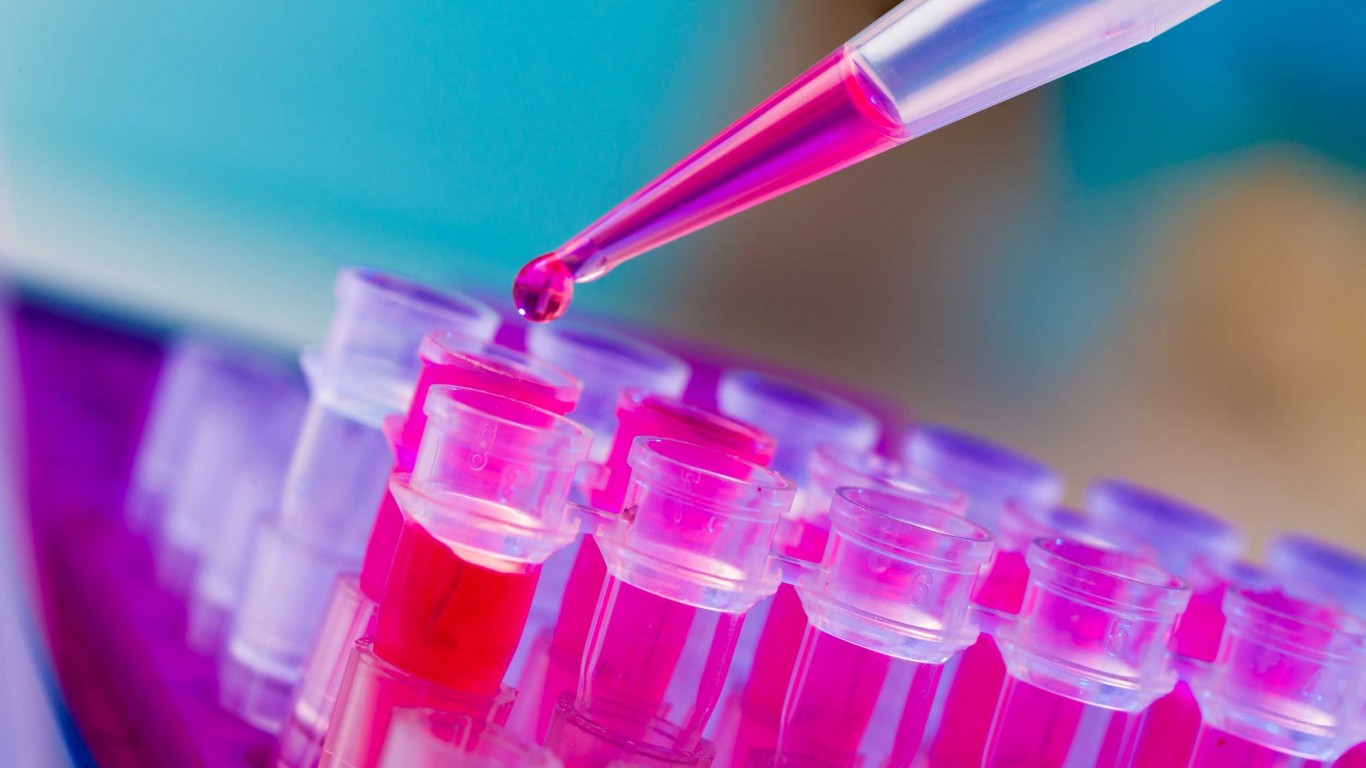Health and Healthcare
Catalyst Pharmaceuticals Looks Cheap, but Few Catalysts for Massive Upside

Published:

Investors often get excited about small-cap biotech and emerging pharmaceutical stocks because the upside can be exponential if their drugs and treatments become a hit. Catalyst Pharmaceuticals Inc. (NASDAQ: CPRX) has been one of those companies, but expectations also have been tempered.
Catalyst’s Firdapse is approved as a treatment for Lambert-Eaton myasthenic syndrome in those who are 17 years of age or older. This syndrome is a rare autoimmune neuromuscular disorder, and its U.S. population is estimated to be 1 in 100,000 people. Catalyst just started generating its revenues in 2019, and investors are trying to figure out if there are other drivers after earnings.
Firdapse’s net revenues of $29.6 million in its second quarter seemed to indicate a slower decline than what had been feared. There also were improvements in the 90-day discontinuation rate.
One key driver for the August disappointment in the stock price was that Catalyst’s MuSK-MG Phase 3 trial did not achieve statistical significance for the primary and secondary endpoints. That is after robust positive results that were observed as far back as 2017 in its proof of concept study.
This was more than a $5 a share stock in July, and by the end of August, it was down to $3.28. As of late September, Catalyst was trading close to $3.
After $102.3 million in 2019 revenues, Refinitiv’s estimates are for revenues to rise about 23% to $126.5 million in 2020 and then by 20% to $152 million in 2021. A report from Truist Securities showed that revenues were expected to hit $256 million in 2022, but that would represent accelerated growth with revenues rising about 50%.
Despite having $155 million in cash and no debt at the end of June, The company’s $326 million market cap is not indicating that its limited drug pipeline is ready to deliver any robust revenue above what is already expected.
The good news for Catalyst is that the company is now profitable and that it should keep growing its cash. That should be the case in the coming years, and that means that the stock will screen as a “cheap biotech valued under 10-times earnings” to some investors.
Truist maintained its Buy rating back in August, but the firm did trim its more aggressive $10 target price to $8 after the company’s Phase 3 miss and due to lawsuit headwinds. What the company sees as a positive is a rebound in Firdapse sales. The firm noted in August that Catalyst’s base business appears to be stable, with new Firdapse opportunities in Canada and Japan. A new patent is expected to be in effect until 2032.
Catalyst remains a thinly covered stock, with very few active analyst calls. By targeting rare conditions, the payoffs for small companies can be huge with orphan drugs. They also can be rather difficult situations for investors. After all, judging revenues over any period can boil down to whether or not a few more patients were added or remained under treatment.
Some small-cap companies will screen as having deep value, but many value stocks are deemed to be “cheap” because they lack any new catalysts and opportunities. That seems to be the case for Catalyst until some new developments or additional data come available. There are other potentially undervalued biotechs with many avenues for upside to choose from.
Trading at $3.07 a share, Catalyst Pharmaceuticals stock has a 52-week range of $2.55 to $5.83.
The average American spends $17,274 on debit cards a year, and it’s a HUGE mistake. First, debit cards don’t have the same fraud protections as credit cards. Once your money is gone, it’s gone. But more importantly you can actually get something back from this spending every time you swipe.
Issuers are handing out wild bonuses right now. With some you can earn up to 5% back on every purchase. That’s like getting a 5% discount on everything you buy!
Our top pick is kind of hard to imagine. Not only does it pay up to 5% back, it also includes a $200 cash back reward in the first six months, a 0% intro APR, and…. $0 annual fee. It’s quite literally free money for any one that uses a card regularly. Click here to learn more!
Flywheel Publishing has partnered with CardRatings to provide coverage of credit card products. Flywheel Publishing and CardRatings may receive a commission from card issuers.
Thank you for reading! Have some feedback for us?
Contact the 24/7 Wall St. editorial team.